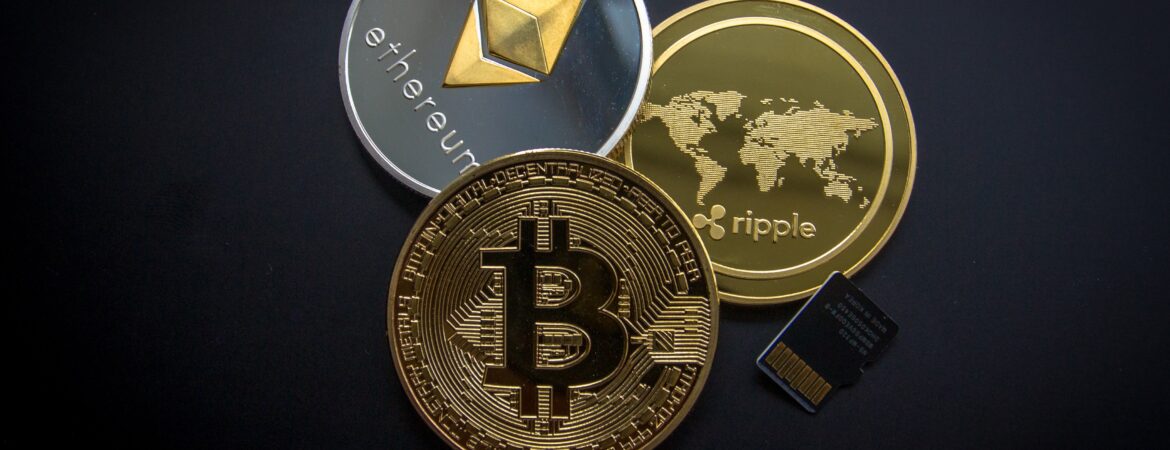
Cryptocurrency may have been around since 2009 but as it becomes more mainstream, we are now being asked more regularly how you should deal with cryptocurrency in a divorce.
In recent years, there have been lengthy debates as to how cryptocurrency should be classed. The conclusion was it should be viewed as ‘property’. This means it is subject to the same rules as cash, pensions, shares or properties.
If you are not sure exactly what cryptocurrency is, it is digital money that has no physical form. It is traded online and has become a popular investment because of its volatile nature. More and more manufacturers and service providers are also beginning to accept crypto following Tesla and Apple’s lead.
While its volatility is attractive to a certain type of investor as it means it can rise and fall far faster than traditional currency, investing in crypto is not without risk. This is because it is neither tied to a centralised system like a bank nor regulated by the government or a recognised authority.
Another reason they are so popular with a certain type of investor is they are completely anonymous. This is one of the main reasons it is difficult to deal with cryptocurrency in a divorce.
Should cryptocurrency be counted in a divorce settlement?
The answer to this question is a resounding “yes”.
Having been classed as ‘property’, cryptocurrency is not only a financial asset, but it is also likely to be a financial asset of significant value. Therefore, the Family Court has the power to make orders against it during a divorce.
This means that while you are negotiating your final financial settlement, both you and your spouse are legally obligated to include any digital assets you have (including cryptocurrency) in your financial disclosure.
This disclosure should include the public keys for your crypto wallets and a transaction history for the last 12 months.
Together these will provide an accurate valuation of the assets involved. As we’ve already mentioned, the volatility of the crypto market can cause the value of the assets to fluctuate wildly so being able to call upon an accurate current valuation before the hearings and settlement negotiations begin is enormously helpful.
How is cryptocurrency dealt with?
If both parties agree, any cryptocurrency tends to stay with the person who originally bought it as capital. However, it could then be offset against another asset in the same way as a pension or property.
Or if the cryptocurrency is to be used as part of the settlement for the non-owning spouse, it can be transferred from one party to another or even shared. This can be done either by exchanging the crypto into ‘fiat’ (more traditional currency which in the UK would almost certainly be Sterling) or by depositing the agreed number of digital coins into an account set up by the recipient.
It is important to note that it is advisable if cryptocurrency is transferred during a divorce as there could well be Capital Gains Tax liabilities.
How do I know if my spouse is hiding cryptocurrency?
Given the anonymity surrounding crypto, this is a very real threat. This threat is compounded by how difficult cryptocurrency is to trace.
The first step is probably to check your spouse’s bank and credit card statements. These could pick up money transferred to cryptocurrency trading platform to finance purchases.
If you have a strong feeling your spouse does have cryptocurrency, think carefully as to whether they have ever mentioned a ‘Cold Wallet’ or a ‘Nano Ledger’. These are the most common ways to hold cryptocurrency on and offline respectively. You should also ask yourself if you have seen the location or access details of either written down anywhere.
If you can’t think of any specific details, confirming the existence of the cryptocurrency you believe exists could prove impossible as it is almost impossible to locate and access a cold wallet.
Income is another potential method of identifying the existence of cryptocurrency.
Tax returns can be carefully analysed. If the cryptocurrency is producing an income or is being received from an employer, it should be declared on the self-assessment.
If none of these areas yield results, external experts like forensic accountants and cryptocurrency specialists can be instructed. However, because of the digital anonymity of cryptocurrency, you again need to understand the realistic chances of success before engaging them.
If this blog has raised any questions regarding how cryptocurrency should be dealt with during a divorce or you would like to discuss any other family law case with one of our experienced family barristers, please contact us today.
Leave A Comment